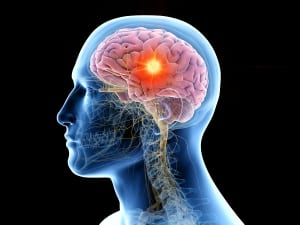Herzliya Medical Center
Tel: +972-9-959-4888
09:00-18:00
 Leading neurosurgeons treat glioblastoma multiforme in Israel at Herzliya Medical Center with the most modern methods of treatment, allowing achievement of excellent results and the high percentage of cancer survival.
Leading neurosurgeons treat glioblastoma multiforme in Israel at Herzliya Medical Center with the most modern methods of treatment, allowing achievement of excellent results and the high percentage of cancer survival.
Glioblastoma Multiforme, GBM (grade IV astrocytoma or glioblastoma) is a malignant type of originating from glial cells (supportive tissue of the central nervous system) called astrocytes. This highly aggressive form of brain cancer belongs to gliomas of the brain and are fast-growing tumors, supported by a rich blood supply. Gliomas are substantially different from one another depending on their ability to infiltrate surrounding tissues and metastasize.
Early-stage Glioblastoma Multiforme penetrates the capsule of the primary tumor; it continues to deeply invade surrounding structures of the brain and is considered a fourth grade (IV) astrocytoma – the highest grade of malignancy.
Astrocytomas are a type of glioma (others include ependymomas, oligodendrogliomas, and mixed gliomas); grade IV astrocytoma is the highest grade of astrocytomas that are fast-growing and spreading to other areas.
Glioblastoma multiforme usually occurs in adults and has an effect on mainly the frontal and temporal lobes. Symptoms of Glioblastoma Multiform are most often associated with a progressive increase in intracranial pressure causing headaches and nausea (similarly to other brain tumor symptoms). However, symptoms associated with multiple destructive foci of the tumor as follows:
The symptoms of astrocytoma (of the fourth degree) progress rapidly with the growth of the tumor and lead to severe disability. Tumor invasion into large blood vessels can cause severe intracerebral hemorrhage, which can be life-threatening.
Diagnosis of glioblastoma multiforme is conducted through a variety of methods:
Aggressive growth and highly invasive glioblastoma multiforme make complete removal of the tumor difficult to achieve. Even with early detection, there is a high risk of relapse. Surgical treatment of highly malignant gliomas in Israel is approached with the following objectives:
Due to high metabolic activity, fourth-grade astrocytoma is sensitive to anticancer drugs and ionizing radiation, both of which having considerable importance in brain cancer treatment.
Among the conservative methods of treatment of glioblastoma multiforme in Israel are among the following:
Innovative techniques used in the treatment of glioblastoma multiforme at Herzliya Medical Center in Israel not only achieve effective control of tumor growth but also maintains the brain’s functional capacity, while also working to prevent complications.
A number of entirely new drugs and gene therapies are passing the last stage of clinical trials, showing promising results as the next arsenal of effective treatment of brain cancer in Israel.